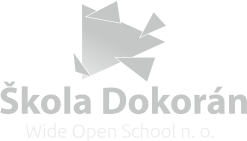Aflatot
The baseline for social inclusion
About the project
The project supported children by boosting their confidence, equipping them with relevant skills and trusting them to make the world their own. It offered a balanced curriculum of social and financial education with an emphasis on child-centred and experiential learning. Our aim was to ensure that as many children as possible had access to social and financial education. This methodology was brought to children through a network of partner organisations linked by the global Aflatoun secretariat based in the Netherlands. The project involved countries with a similar situation in pre-school education, especially because of the diversity of children at an early age, such as migrant children and children from socially disadvantaged backgrounds or Roma children.
Based on the demands of the network and our belief that educating children from an early age can improve their life chances, we developed the Aflatot programme for children aged 3-6. Preschool education can make an important contribution to tackling educational disadvantage if certain conditions are met. The most effective intervention programmes include intensive, early start, child-focused, centre-based education together with strong parental involvement, parent education, educational home activities and family support measures.
For young children, it is the balance and cross-fertilisation of social and economic issues combined with child-centred methodologies that make the programme effective. Aflatot uses the Aflatoun teaching methodology of "learning by doing", where children are encouraged to take an active role in the learning process. Encouraging children to play and explore helps them to learn and develop socially, emotionally, physically and intellectually and helps to consolidate the lessons. Aflatot placed heavy emphasis on play, song, dance, creative arts and verse as mediums of learning. The Aflatot programme aimed to empower children to believe in themselves, to understand and explore their rights and responsibilities, and to become familiar with the basic concepts of money and resources.
The project focused on the development of pre-school children's competences, especially social and civic competences, through the implementation of the Aflatot programme in the participating countries. The social and financial education curriculum of this programme was based on the principle that the personal, social and economic life of every person is interrelated and should be taught in a holistic way to enable children to pursue their goals.
The main aim of the project was to support the partnership initiative aimed at promoting innovation in the education of children in an early age, their parents and teachers from kindergartens and the exchange of experiences between participating partners.
The general objective of the project was to empower children and their parents to become agents of change for themselves and their communities through the development of their civic and social competences.
The specific objective was to expand the educational curricula for the target groups using Aflatot methods. Achieving this goal enabled participating countries to improve preschool education on a systematic level and to extend this programme to other countries and to work systematically on the competences of the selected target groups. We brought a change to pre-school education in an area where our kindergartens have never worked before. The project also increased the competences of the teachers working with the target group. We have involved parents in direct work with children at an early age, because parents are the main figures in children's lives and can greatly influence their attitudes and positive approach to the world.

